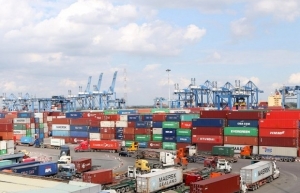New resolution opens opportunities for logistics sector
 |
| Kiet Le, research lead, Manufacturing Group of Dezan Shira & Associates |
After a prolonged wait, the government issued Resolution No.98/2023/QH15, a sweeping initiative to steer Vietnam back towards prosperity. However, the pressing question lingers: will this ambitious vision result in tangible changes for the average Vietnamese citizen? The path forward remains laden with uncertainties.
Resolution 98 passed by the National Assembly in June 2003 took full effect from August 1, 2023, focusing on introducing a transport-oriented urban development model for Ho Chi Minh City. Notable adjustments include increased decentralisation and autonomy for Ho Chi Minh City People’s Committee in matters of budget allocation and urban planning.
Resolution 98 encompasses three key sectors including attracting strategic investors, science and technology management and innovation, and the organisational structure of the city. The focus of this initiative is mainly on Thu Duc city and Ho Chi Minh City, and 27 mechanisms are tailored exclusively for the latter.
Opportunities to attract investments in logistics sector
A need for higher foreign direct investment (FDI) to boost the country’s growth requires better policies, infrastructure, and technology to provide an attractive destination for foreign investors.
Resolution 98 sets out to address these areas to draw in higher investment for the country. Major sectors addressed in Resolution 98 include high technology research and development, technology, biotechnology, automation, and clean energy, integrated circuit industry, design technology, manufacturing components, new chip technologies, and investing in the construction of Can Gio International Port.
Through these sectors, a clear trend can be seen with Ho Chi Minh City prioritising investment in technology-related projects and a call for investment in the new Can Gio International Port. Ho Chi Minh City requires a solution to its land availability problem so a shift to technology-related activities is essential due to better land usage for investment return. This will lead away from agriculture, gearing to the original goal of increasing innovation and productivity. In addition, the new Can Gio International Port provides better overall industrial logistic infrastructure and aims to leverage the south's current standing as a key economic region.
Among the identified contributors, there is a notable improvement in logistics infrastructure facilitated by a model that empowers Ho Chi Minh City to engage in compensation, support, and resettlement projects around Ring Road 3. This model not only grants the city increased autonomy in shaping its trajectory but also underscores its decision to acquire land. This land can then be strategically auctioned to select investors, fostering the aspiration of expanding urban development projects.
Spanning major key areas in Ho Chi Minh City (Thu Duc, Cu Chi, Hoc Mon, and Binh Chanh), as well as extending into the provinces of Dong Nai, Binh Duong, and Long An, Ring Road 3 encapsulates a vital geographic expanse. This comprehensive initiative bolsters logistics infrastructure and addresses challenges in Thu Duc arising from earlier noted issues related to inadequate infrastructure. The overarching policy aims to fortify businesses along Ring Road 3, promoting better infrastructure projects for sustained growth and development.
Resolution 98 places a heightened emphasis on incentivising technology and innovation, particularly in the realm of startup activities. As outlined, endeavours in innovation and startup initiatives can qualify for a corporate income tax (CIT) exemption spanning up to five years, encouraging and seeking to promote growth in the available technology of the country to further pull in investment.
First results revealved
The result can be seen with immediate effect, as the government aims to take immediate action to adjust certain aspects of the economy for the full implementation of the Resolution 98.
However, beyond even the immediate benefits, Resolution 98 sets out to achieve the goal of further investment incentives for the logistics and technology industries that align with the goal of restoring the strong standing of Ho Chi Minh City to play a crucial role in the Southern Key Economic Region.
Given the multifaceted goals outlined, diligent supervision and effective development are crucial for the resolution's successful implementation. Recognising that the full impact of Resolution 98 necessitates time and resources, it is essential to grasp the substantial opportunities it could offer when executed correctly. This potential has already become evident in the immediate economic benefits witnessed across the city, underscoring its positive trajectory.
Effective implementation of Resolution 98 hinges on a collaborative effort between the city and the advisory council. The pace of applying the resolution relies entirely on the synergy achieved through their collaboration. Resolution 98 is designed not just to offer increased incentives for improvement but also to champion decentralisation, empowering the city with geater responsibility for driving and expediting the city's ongoing development.
Resolution 98 is not positioned as a solution for all challenges but as a foundation paving the way for future development not only within the city but also on a national scale.
Phan Van Mai, Chairman of Ho Chi Minh City People's Committee, envisions there will be significant concrete results after three years of implementation. These results can be reported and evaluated to refine the resolution for greater benefit to both the city and the country at large.
 | HCM City to build seven new logistic centres The southern economic hub of Ho Chi Minh City will build seven new logistic centres from now to 2025, the municipal People’s Committee said on July 3. |
What the stars mean:
★ Poor ★ ★ Promising ★★★ Good ★★★★ Very good ★★★★★ Exceptional
 Tag:
Tag:
Related Contents
Latest News
More News
- Internal strengths attest to commitment to progress (February 19, 2026 | 20:13)
- Vietnam, New Zealand seek level-up in ties (February 19, 2026 | 18:06)
- Untapped potential in relations with Indonesia (February 19, 2026 | 17:56)
- German strengths match Vietnamese aspirations (February 19, 2026 | 17:40)
- Kim Long Motor and AOJ Suzhou enter strategic partnership (February 16, 2026 | 13:27)
- Haiphong welcomes long-term Euro investment (February 16, 2026 | 11:31)
- VIFC in Ho Chi Minh City officially launches (February 12, 2026 | 09:00)
- Norfund invests $4 million in Vietnam plastics recycling (February 11, 2026 | 11:51)
- Marico buys 75 per cent of Vietnam skincare startup Skinetiq (February 10, 2026 | 14:44)
- SCIC general director meets with Oman Investment Authority (February 10, 2026 | 14:14)


















 Mobile Version
Mobile Version